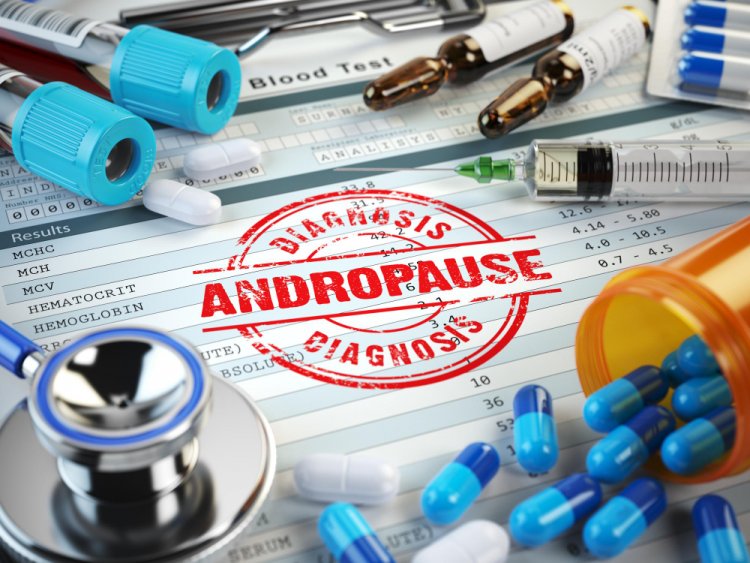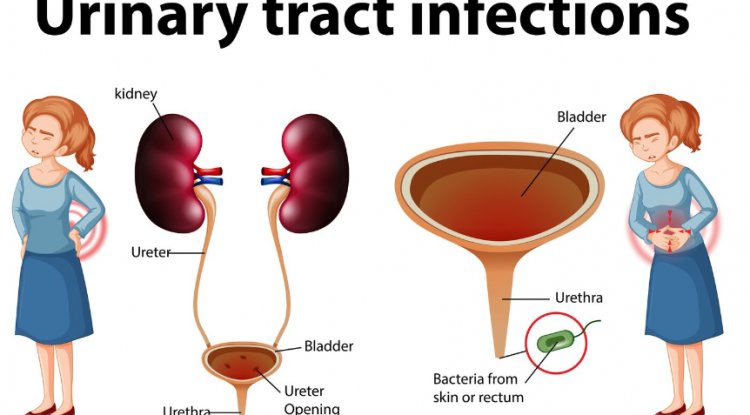The Hormonal Shift: What Every Man Should Know About Andropause
Andropause, commonly known as male menopause, refers to a natural biological phenomenon characterized by a gradual decline in testosterone levels in aging men. While it shares some similarities with menopause in women, andropause is a distinct process with its own set of symptoms and effects. This article aims to provide a comprehensive overview of andropause, including its causes, symptoms, diagnosis, and treatment options.

What is Andropause?
Andropause is a term used to describe the hormonal changes that occur in men as they age, particularly the decline in testosterone production. Testosterone is a vital hormone responsible for various functions in the male body, including the development of reproductive tissues, muscle mass, bone density, and libido. Unlike menopause in women, which typically involves a sudden cessation of menstruation due to a decline in estrogen levels, andropause is characterized by a gradual decline in testosterone levels over time.
Causes of Andropause:
The primary cause of andropause is the natural aging process. As men age, their bodies undergo various physiological changes, including a decline in hormone production. Testosterone levels typically peak in men during their late teens or early twenties and gradually decline by about 1% per year after the age of 30. Other factors that can contribute to the onset and progression of andropause include chronic stress, obesity, sedentary lifestyle, poor diet, smoking, excessive alcohol consumption, and certain medical conditions such as hypogonadism and diabetes.
Symptoms of Andropause:
Andropause can manifest in a wide range of symptoms, which can vary in severity from mild to debilitating. Common symptoms of andropause include:
- Decreased libido: Many men experience a decline in sexual desire and arousal as testosterone levels decline.
- Erectile dysfunction: Difficulty achieving or maintaining an erection can occur due to reduced blood flow to the penis or decreased sensitivity to sexual stimuli.
- Fatigue and decreased energy: Men may feel constantly tired, lethargic, or lacking in motivation, even after adequate rest.
- Loss of muscle mass and strength: Testosterone plays a crucial role in maintaining muscle mass and strength, so a decline in hormone levels can lead to muscle wasting and weakness.
- Increased body fat: Andropause is often associated with an accumulation of abdominal fat, leading to a more pronounced "beer belly" appearance.
- Mood changes: Hormonal fluctuations during andropause can contribute to mood swings, irritability, anxiety, depression, or feelings of emotional instability.
- Decreased bone density: Low testosterone levels can increase the risk of osteoporosis and bone fractures, particularly in older men.
Diagnosis of Andropause:
Diagnosing andropause involves a comprehensive evaluation of symptoms, medical history, and physical examination, as well as laboratory tests to measure testosterone levels. Blood tests are typically used to assess total testosterone levels, as well as other hormones such as luteinizing hormone (LH) and follicle-stimulating hormone (FSH). Additional tests may be performed to rule out underlying medical conditions or secondary causes of symptoms.
Treatment Options:
Treatment for andropause aims to alleviate symptoms, improve quality of life, and address any underlying hormonal imbalances. Depending on the individual's health status, preferences, and severity of symptoms, treatment options may include:
- Testosterone replacement therapy (TRT): TRT involves administering testosterone via injections, patches, gels, pellets, or oral tablets to restore hormone levels to normal range. TRT can help improve symptoms such as low libido, erectile dysfunction, fatigue, and muscle weakness.
- Lifestyle modifications: Adopting a healthy lifestyle can help mitigate the effects of andropause and improve overall well-being. This may include regular exercise, a balanced diet rich in nutrients, adequate sleep, stress management techniques, smoking cessation, and moderation of alcohol consumption.
- Medications: In addition to testosterone therapy, certain medications may be prescribed to manage specific symptoms associated with andropause. For example, phosphodiesterase type 5 (PDE5) inhibitors such as sildenafil (Viagra) or tadalafil (Cialis) may be used to treat erectile dysfunction, while antidepressants or anxiolytics may help alleviate mood disturbances.
- Counseling and support: Psychological counseling or support groups may be beneficial for men experiencing emotional difficulties or struggling to cope with the changes associated with andropause. Counseling can provide education, coping strategies, and emotional support to help men navigate this transitional phase of life.
Andropause is a natural and inevitable stage of the aging process for many men, characterized by a decline in testosterone levels and associated symptoms. While the physical and emotional changes of andropause can be challenging to navigate, seeking appropriate medical care and support can help men effectively manage symptoms and maintain a high quality of life as they age. By understanding the causes, symptoms, and treatment options for andropause, men can take proactive steps to promote their health and well-being in later life.
#AndropauseAwareness #MaleMenopause #TestosteroneDecline #HormonalChanges #AgingEffects #MensHealthIssues #MidlifeTransition #HormonalImbalance #HealthAndWellness #MensHealth #HealthyAging #MentalHealth #EmotionalWellBeing #TestosteroneTherapy #LifestyleChanges #ErectileDysfunction #MuscleMass #BoneHealth #Libido #HealthyLiving #HealthyLifestyle
Disclaimer:
The information provided in this article is for educational purposes only and should not be considered medical advice. If you have any health concerns or are experiencing symptoms, it is important to consult with a healthcare professional, such as a doctor or clinic, for proper diagnosis and treatment. Always seek the advice of your doctor or other qualified health provider with any questions you may have regarding a medical condition. Do not disregard professional medical advice or delay in seeking it because of something you have read in this article.
What's Your Reaction?





















